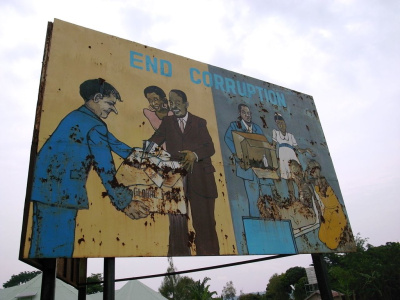
Count down to concluding EPAs: What's really at stake?
The EU is eager to conclude trade agreements with Africa…but at what costs?
After over 10 years, the EU has gotten tired of seemingly endless negotiations and is eager to move on.The European Union (EU) has given African and Pacific countries until 1 October 2014 to complete new trade agreements between the two, or ratify existing ones, if they don’t want their exports the risk facing higher restrictions to the European market.
While the negotiations at the World Trade Organization (WTO) are in a stalemate, the EU has engaged in a number of bilateral trade negotiations with Asian countries, including India, and last week Japan, Canada and the United States (due to start soon). In this context, Africa seems to have become little more than an annoying negotiating partner.
In 2007, 36 African, Caribbean and Pacific (ACP) countries concluded economic partnership agreements (EPAs) with the EU. With the exception of the Caribbean, all agreements were interim free trade agreements concluded to preserve the market access of these countries to the EU. Under Market Access Regulation (MAR) 1528 of 1st January 2008, the EU granted duty-free quota-free market access to the all the exports from EPA countries.
The problem is that besides Caribbean countries and only four African states (Madagascar, Mauritius, Seychelles and Zimbabwe), none of the other countries have held up to their part of the agreement, not even formally endorsing (i.e. signing or ratifying) them.
The reasons are threefold:
-
some agreements were concluded in a rush, not fully reflecting the interests and concerns of the countries;
-
agreements were concluded on an individual basis, and not on a regional basis as had been planned (with the exception of the Caribbean and the East Africa Community); and
-
some countries concluded an EPA as a way to keep the EU market open, with no real intention to open up their own market to the EU, or at least so it seems.
Deadline worries
The ACP Group has complained over the deadline, and so has the African Union in its 6th annual College-to-College session with the EU, which is taking place on 25-26 April in Addis. This is hardly surprising, as many African countries benefit from the current situations. There are good reasons to be concerns over the deadline, or rather the way forward in the EPA process.-
Firstly, EPAs were conceived first and foremost as a development. With dwelling on the validity of the concept, it is clear that expect perhaps for a handful of countries, EPAs are not perceived as a key instrument in the economic transformation of African countries. Or they would have shown more eagerness to conclude an agreement a long time ago.
-
Secondly, EPAs were deemed to build on and foster regional integration. This may work for some regions, but is likely to put serious strain on others. Could some SADC countries go forward with their EPAs without South Africa, and still keep maintain the SACU unity? Should 14 West African countries jump on the regional EPA bandwagon to accommodate the needs of Ivory Coast and Ghana for market access to the EU? While the African priorities should be for regional unity, division might ultimately prevail because of an EPA.
-
Thirdly, regional negotiations would have to advance quickly and be concluded months before the October 2014 deadline, to give time for the agreement to be legally in place by then and avoid any temporary trade disruption in the transition between individual interim EPAs covered by MAR1528 and the new regional EPAs, should such an agreement be concluded.


